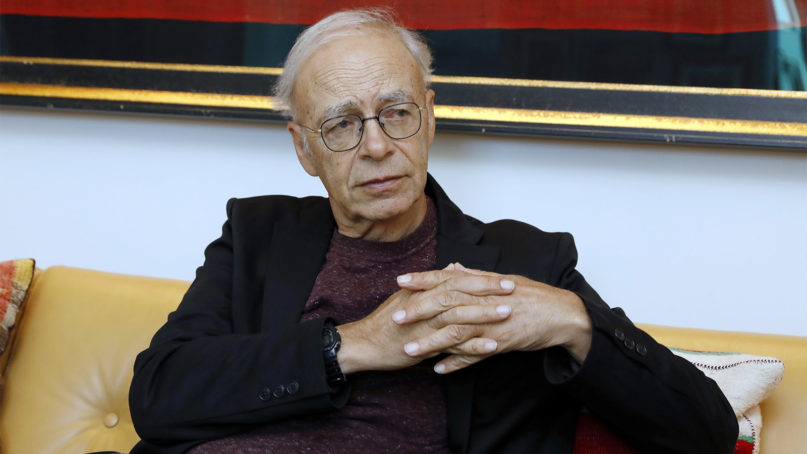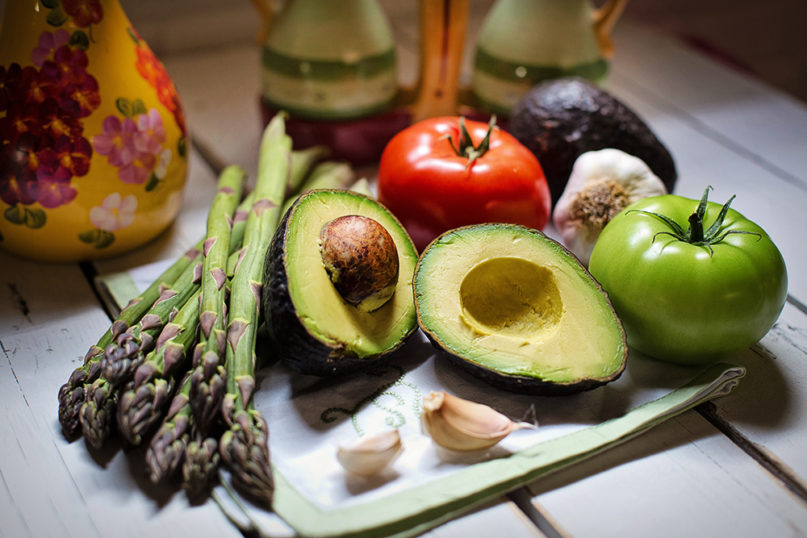LONDON (RNS) — Ask most Britons which beliefs need protection from discrimination under the country’s 10-year-old Equality Act and they will likely suggest Islam, or even state-sanctioned but beleaguered Christianity. But now a judge acting in an employment discrimination case has said that ethical veganism is a valid, coherent belief and should therefore be protected by law.
The ruling comes in a case brought by Jordi Casamitjana, a zoologist who worked for the anti-hunting group League Against Cruel Sports, who was fired after he warned colleagues that the nonprofit’s pension fund was investing in companies involved in animal testing. Casamitjana said his warning was spurred by his ethical veganism.
Ethical vegans eat a plants-only diet and avoid contact with any products that contain animal parts, including leather shoes, or that involve animal testing, even if that means avoiding lifesaving drugs.

Jordi Casamitjana. Video screengrab
Casamitjana reportedly refuses to sit on leather chairs and avoids taking buses in case they run over insects.
In his ruling, Judge Robin Postle said that ethical veganism satisfied the tests to qualify as a philosophical belief under the Equality Act 2010. For a belief to be protected, it must be worthy of respect in a democratic society, compatible with human dignity and not conflict with the fundamental rights of others.
Postle’s ruling only resolved the question about ethical veganism. The lawfulness of Casamitjana’s treatment by the League Against Cruel Sports will be settled in another proceeding.
Speaking outside court, Casamitjana said: “It was very important to win this ruling today because it’s not just my case, which is obviously important to me personally, but … this case will influence the life of many vegans out there.
“It will help the promotion of veganism as a lifestyle because vegans who might be afraid about talking about their belief, that might be feeling that they are not welcome, they will feel empowered now.
“They will believe that their belief is now a protected belief. … That will give them power and that means they will be more expressive.”
Peter Daly, a lawyer who represented Casamitjana, said that the recognition of ethical veganism will have “potentially significant effects on the workplace, education, transport and the provision of goods and services.”
The philosophical basis for veganism extends back to 1989, when Princeton University moral philosopher Professor Peter Singer published his essay “All Animals Are Equal.”
“Our practice of rearing and killing other animals in order to eat them,” Singer wrote, “is a clear instance of the sacrifice of the most important interests of other beings in order to satisfy trivial interests of our own. To avoid speciesism we must stop this practice, and each of us has a moral obligation to cease supporting the practice.”

Peter Singer in New York on Nov. 8, 2019. (AP Photo/Richard Drew)
Singer put animal diets on a par with slavery, asking, “If we do not change our dietary habits, how can we censure those slaveholders who would not change their own way of living?”
However, British philosopher Julian Baggini, a member of the country’s Food Ethics Council, set up to advise on ethics in food production and farming, said he was surprised by the judge’s ruling.
“There are certainly philosophical grounds for being a vegan,” he said. “But what is very odd about this case is that it is not a worldview. Ethical veganism would follow from your wider viewpoint; it is not the wider viewpoint. It does not make sense to have a worldview based just on ethical veganism.”
Veganism is growing fast in the U.K., with the Vegan Society estimating that 600,000 people follow a plant-based diet for health and ethical reasons.
The figure may include, however, those who call themselves “flexitarians,” and others who are temporarily vegan or vegetarian. Market researchers Mintel estimate that the U.K. market for meat-free food was worth about $970 million in 2018, and food outlets such as McDonald’s now offer meat-free options in the U.K.

Photo by Silviarita/Pixabay/Creative Commons





